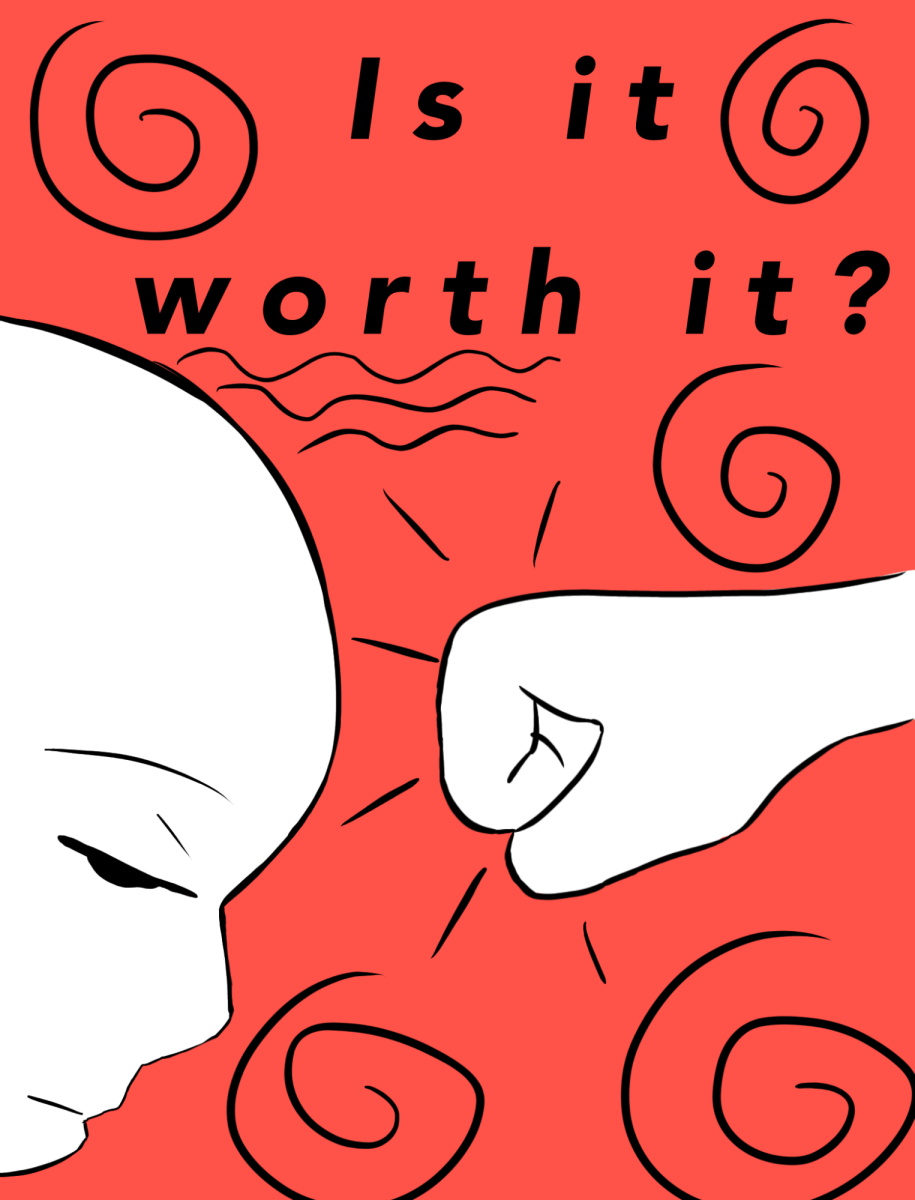Growing up comes with mental health issues for most people, both men and women. Throughout recent decades, mental health care has become more normalized. However, the male side of mental health often seems to be overlooked and even judged. Society puts men on a pedestal to exclusively demonstrate strength, so when men display emotions, they can be viewed as weak.
When the societal norm is to silence men’s emotions, men can begin to fear expressing their feelings to mental health professionals and supportive people in their lives. If we are constantly bottling our emotions, it can lead to additional pressure. Junior Steven Maxwell, though, is quite open about his struggles with people he trusts. But at the same time, Maxwell is affected by the societal norm that men should always be emotionally resilient.
“I am always trying to present myself as alright even if I’m not because I fear making people uncomfortable when I talk about my emotions,” Maxwell said.
When faced with judgment from society, men can often turn to a toxic form of masculinity. Toxic masculinity is an exaggerated expression of traits that are traditionally seen as masculine. For instance, traditionally, men are seen as the more violent gender. With toxic masculinity, a man could exhibit that trait to prove their worth to other people. An individual’s toxic masculinity formed by a lack of mental health acknowledgment can become dangerous not only to the people around them, but to themselves as well. It can often lead to further mental health problems. When not addressed, this could lead to a vicious cycle of toxic masculinity and depression.
“Toxic masculinity opposes mental and physical health treatment even when injured or emotionally struggling,” according to the Anxiety and Depression Association of America (ADAA). “Suppressing mental health issues, such as depression, trauma and anxiety, can worsen symptoms and precipitate isolation, loss of jobs or friends and even suicide.”
When mental health issues aren’t being addressed, it can cause people to feel hopeless and worsen their problems. Suicidal thoughts can begin to form, consuming people’s lives. If men are constantly masking their feelings, reaching out for help when they begin to have these thoughts can seem impossible. In 2022, men died by suicide almost four times more than women, according to the American Foundation for Suicide Prevention (AFSP). Although people with suicidal thoughts may believe seeking assistance is pointless, finding that help can ultimately save their life.
“Women represent a higher percentage of calls to crisis hotlines worldwide, despite men having higher rates of suicide,” according to the Journal of Mental Health.
Men are less likely to seek help because of the stigmas around them showing vulnerability.
Junior Dino Piemonte is able to be honest with himself when regarding mental health issues. He has recognized a stigma about men’s mental health in the world around him.
“I feel people may not want to hear a man’s suffering because it may seem uncomfortable and not normal,” Piemonte said.
That uncomfortable feeling can cause men to feel like they need to disguise their feelings. Piemonte believes that this bottling up combined with the heavy expectations on men from society leads to worsening mental health. However, there can be ways to remedy that. School psychologist John Markovich advises men to find out how they want to deal with their mental health.
“We all deal with things differently,” Markovich said. “Some people want to problem-solve when they talk to somebody. Some people just want someone to listen. If they don’t want to talk, you can find a different way.”
Markovich believes it is important to remember that men have dealt with judgment regarding their mental health for a long time. In society and family situations, men are perceived as stoic and the ones to let things go. Markovich explains that in order to help people, there might be alternate ways to ease their stress about getting help. For instance, he advises getting up and doing something during a conversation instead of just staying still and discussing.
“Get up and walk so there’s not the pressure of thinking, ‘All we’re doing is sitting here talking,’” Markovich said.
While men may avoid confronting their mental health, acknowledging it and getting help can improve their lives. Markovich says that the first step is just asking for help.
“There’s just so much judgment around [therapy] from family members or even from themselves,” Markovich said. “They feel like they’re weak. You’re not weak. It takes a lot more strength to go and ask for help than to just sit there and suffer.”









